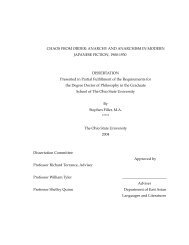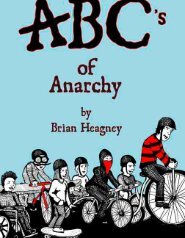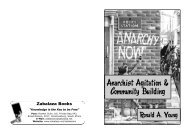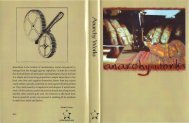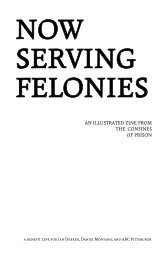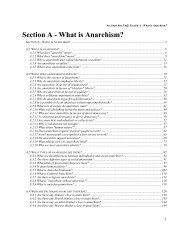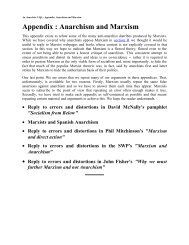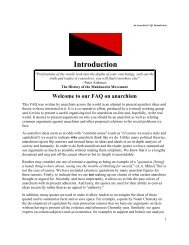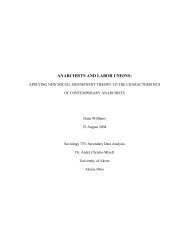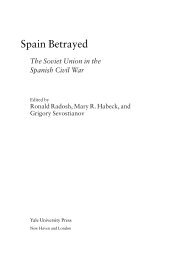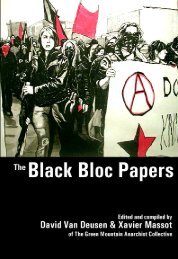Graham Gamblin - Infoshop.org
Graham Gamblin - Infoshop.org
Graham Gamblin - Infoshop.org
Create successful ePaper yourself
Turn your PDF publications into a flip-book with our unique Google optimized e-Paper software.
3. Political Terror, Economic Terror and Propaganda<br />
Nevertheless, other tendencies continued to operate. Some colonists, or<br />
derevenshchiki, led by Ge<strong>org</strong>ii Plekhanov, insisted on continuing the slow campaign<br />
of infiltrating the peasantry. Others, like Lev Deich, Stefanovich and Vera Zasulich<br />
joined them- but they remained buntari, insisting on economic terrorism by the people<br />
against their immediate enemies, the landlords and the bosses. Their quarrel with the<br />
new trend was not whether to use arms and action but who should use them and<br />
against whom. Both they and the derevenshchiki pitted their federalism and hopes for<br />
a mass movement and social revolution against the Executive Committee's centralism<br />
and political action. Thus a three-way debate on tactics and <strong>org</strong>anisation was taking<br />
place within Russian populism; some favoured federalist <strong>org</strong>anisation and<br />
propagandist tactics; others federalism and tactics of popular violence; and still others<br />
centralist <strong>org</strong>anisation and political violence. A split was inevitable; those around the<br />
Executive Committee , who favoured a campaign of political change through<br />
terrorism became Narodnaya volya, while Plekhanov's followers formed Chernyi<br />
peredel, "Black repartition", reflecting their continuing concentration on the peasants.<br />
Chernyi peredel reflected the views of "orthodox" Populism, envisaging a long,<br />
slow campaign of propaganda among workers and peasants to build a mass<br />
movement. They claimed the isolation from the masses implied by a political terrorist<br />
campaign could only lead to revolutionaries replacing the state rather than destroying<br />
it. They emphasised federalism rather than centralism in their <strong>org</strong>anisation, agrarian<br />
revolution and a redistribution of the land. "If the popular forces are not <strong>org</strong>anised,<br />
then even the most heroic fight put up by the revolutionaries will prove advantageous<br />
only to the upper classes; the liberation of the people must be the work of the people<br />
themselves" wrote Plekhanov. 31<br />
However, the debate was not merely one of propaganda by deed and political<br />
revolution (Narodnaya volya) against propaganda by word and social revolution<br />
(Chernyi peredel). Like Chernyi peredel, the aim of the South Russian Union of<br />
Workers in 1880-81 was to increase the political conscience and <strong>org</strong>anised activity of<br />
workers and peasants, and thus prepare a social and economic revolution carried out<br />
by, not in the name of, the exploited classes. E. Koval'skaya and N. Shchedrin shared<br />
31 Venturi op.cit. p.661<br />
17



